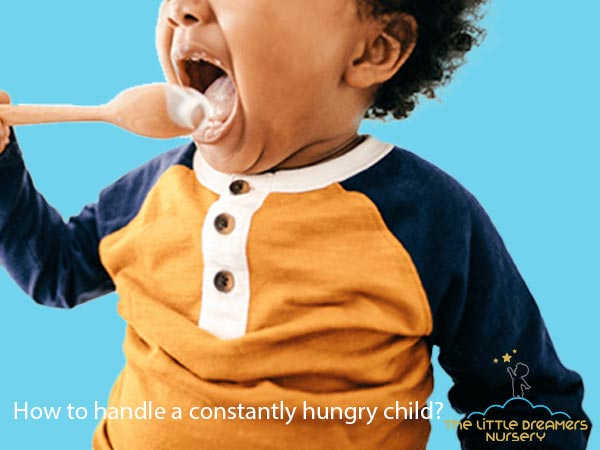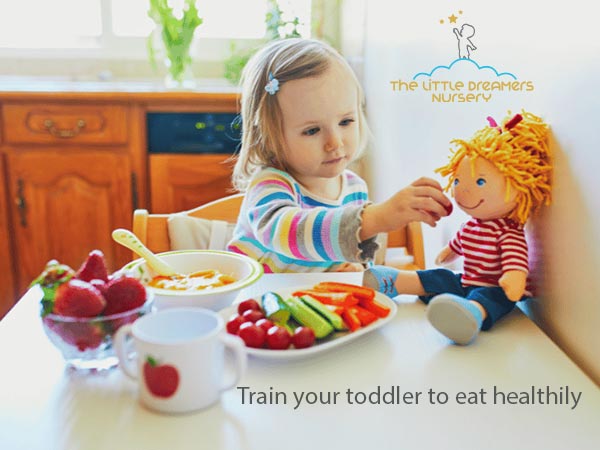Many parents report that their children’s appetites decrease throughout the toddler years, and some even say that their children become particularly ‘fussy eaters.’ You may be perplexed by your child’s lack of appetite when seeing other preschoolers.
Find out why some toddlers seem perpetually hungry and what you should do if your child is constantly asking for food by reading about the changing eating habits of children at different ages. Wondering how to prevent my toddler from overeating. Keep reading to learn how you can stop child overeating disorders.
Read this article: Good habits for children
Is my child eating too much, and how to prevent my toddler from overeating?
How do I know if my toddler is overeating? Your child’s pediatrician is the best person to ask whether or not your toddler is eating too much. This is because your doctor will take into account your child’s age, height, weight, activity level, and any medical concerns they may have and then decide whether these are signs toddler is overeating or not. How to prevent my toddler from overeating? We’ll discuss it below.
How to handle a constantly hungry child?
How to prevent my toddler from overeating? Consult your child’s pediatrician before making any drastic dietary changes if you’re worried about their health. Get your doctor’s guidance on making your household healthier if you have any concerns or queries. However, these guidelines can be applied throughout all mealtimes and snack times:
Make a good example
Pick up nutritious foods and meals yourself, and always have fresh fruits, vegetables, and other healthy options for the whole family to share.
Don’t put pressure on them
Stay away from the “clean plate” crowd if you want to teach your child to stop eating when they are full rather than stuffed.
Train them to eat healthily
Include entire grains, lean protein, fruits, vegetables, and low-fat dairy products in your toddler’s diet every day (after age 2). Never overfeed toddlers with junk foods.
Start the day with a balanced meal
Breakfast eaters have fewer health problems than toddlers who don’t eat anything but snacks, better grades, more focus in class, and fewer absences than those who skip it. Fruit, toast, eggs, and oatmeal are all good options for a toddler’s breakfast.
Planning meals and snacks are essential
Planning meals and snacks is essential when a child is overeating. Toddlers can refuel between meals with the help of nutritious snacks. Provide something to eat between breakfast and lunch and between lunch and dinner. They need more than that to control their mealtime hunger.
Get them to pay attention to their stomach. Instead of spoon-feeding your toddler, teach them to feed themselves so they can determine their food intake. When they appear content, they can get up from the table.
Inspire physical activity
Encourage your child to engage in lots of active play. And set an example; the whole family benefits from physical activity (such as walking, swimming, playing tag, or riding bikes).
Teach them to eat more slowly
Good things include food. Food is essential to life, yet it’s also enjoyable in its own right. However, these episodes of rapid eating are characteristic of binging and comfort eating. Eventually, the binge eater stops enjoying the act of binging.
So, set an example by eating more slowly in front of your child. Attempt to eat more slowly and deliberately as a family during mealtimes. By taking your time and savoring your meal, you can easily teach your child the value of food and taste.
Consumption reduction strategies are certain to fail
Attempts to regulate portion sizes are likely to be interpreted as humiliating. When we feel ashamed, it’s natural to want to eat to soothe our emotions.
Is it common for you to be advised to reduce your calorie intake? By your doctor, trainer or parents who mean well? To what extent did it affect your emotions?
Being sympathetic and encouraging is crucial. Your youngster may feel humiliated if you tell them they eat too much or need to cut back on their food intake. They will probably keep eating, but now that they’re embarrassed about it, they’ll probably do it behind closed doors.
Wrap Up
Now you know all about how to prevent my toddler from overeating. Take a close look at what your child eats during the day and discuss it with their pediatrician because you know them better than anyone else. You and your toddler should work together to develop some clever ways to promote healthy eating at mealtime and between-meal snacks.
To visit our nursery in Dubai










